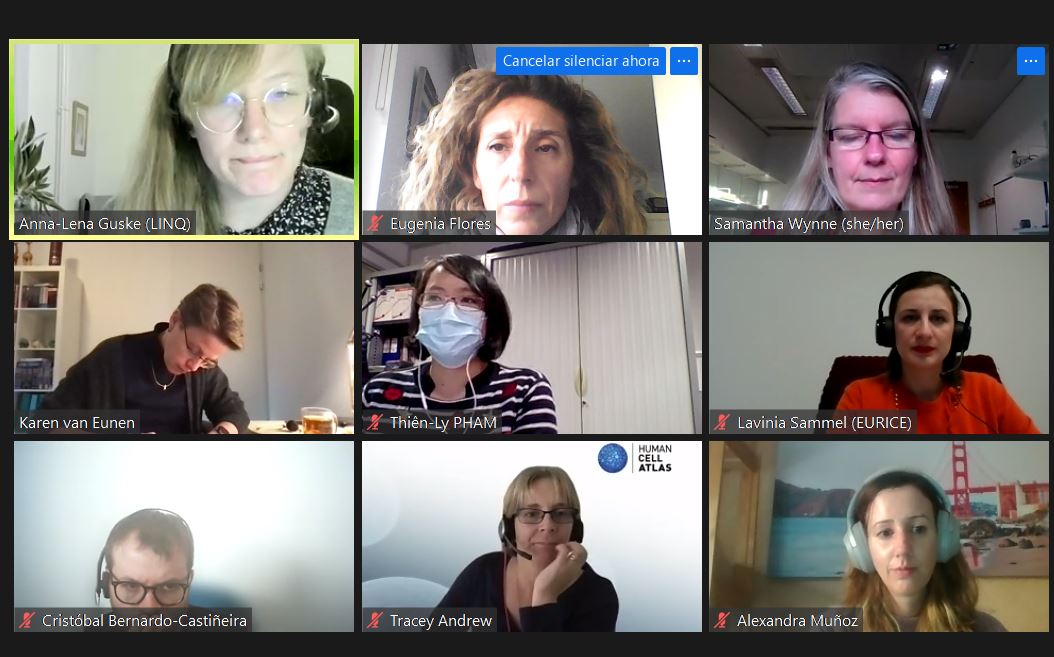November 18, 2021

H2020-HCA cluster communication managers meeting held yesterday
Date: November 18th 2021
The Human Cell Atlas initiative (HCA) aims to create molecular reference maps of all human cells to pool and expand knowledge of the diverse cells found within the human body in order to better understand human health, but also to improve diagnosis, monitoring and treatment of diseases.
As a contribution to this global initiative, The European Commission is funding six pilot actions (HCA Organoid, DIscovAIR, HUTER, Braintime, HUGODECA and ESPACE) within the Horizon2020 Research and Innovation Framework Programme, starting from January 2020. Each of those projects has been designed to characterize single cells or their nuclear components, their interactions and/or spatial location in tissues from one human organ, using state-of-the-art singe cell technologies, analytical methods and computational tools, and brings together European experts in the respective fields who are joining their efforts to support the creation of the human cell atlas.
Yesterday the six consortia together with the Human Cell Atlas initiative held the quarterly virtual meeting to discuss the join actions to be perform during the next months.
The project BRAINTIME aims to increase our understanding of the developing and the ageing human brain.
The DISCOVAIR consortium focuses on the lung.
ESPACE aims to map the human pancreas.
The HCA Organoid initiative will establish a “Human Organoid Atlas” within the HCA, initially focusing on two organs (colon and brain) but adding other organs as pilot studies.
The project HUGODECA works on understanding the cellular composition and organization of the developing human gonads.
The HUTER project will provide unprecedented insight at transcriptomic, genomic and spatial changes of the uterus throughout the menstrual cycle as well as across lifespan.
About the Human Uterus Cells Atlas – HUTER
The human uterus is a flagship reproductive organ with profound implications not only in reproduction but also in women ́s health. HUTER can advance the Human Cell Atlas initiative for the exploitation potential in Obstetrics and Gynecology and biomedicine research areas such as Regenerative Medicine or Reproductive Medicine.
The uterus is itself a model for regenerative medicine since (i) endometrial tissue regenerates monthly and its transformation is executed through dynamic changes in states and interactions of multiple cell types, and (ii) myometrial tissue has remarkable regenerative capacity and extensive remodelling throughout pregnancy. Hence, the primary motivation HUTER proposal stems from the need to better understand the human uterus in order to more effectively address uterine diseases that impact women ́s health such as myomas or endometriosis and/or might contribute to infertility, infant and maternal mortality and morbidity.
HUTER technological and biological platform will be a crucial resource for the scientific and clinical communities to define the cellular basis of health and disease, allowing the rapid development of new diagnosis and prognosis tools and therapeutic advancements in the field.
Link to the project website here

